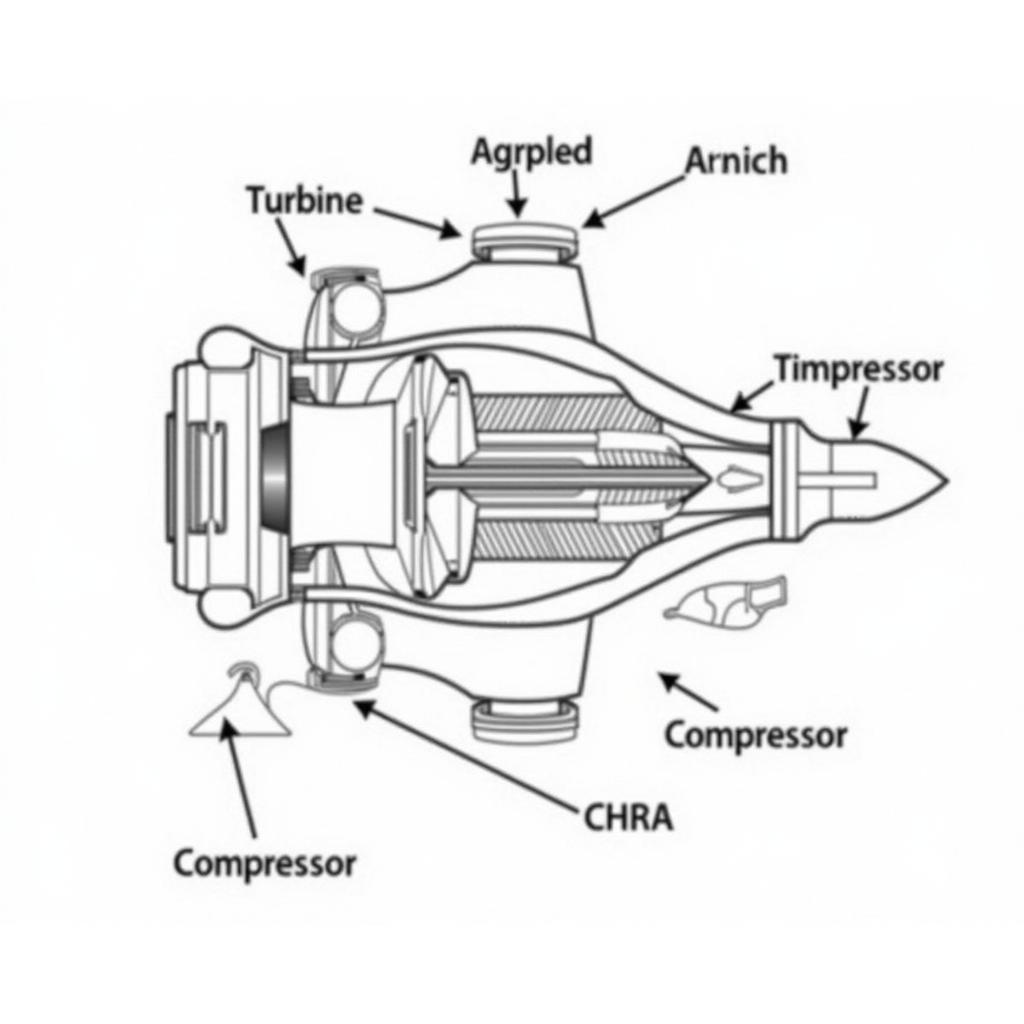Car Turbo Maintenance is crucial for optimal performance and longevity. Neglecting this vital aspect can lead to costly repairs and diminished driving experience. This guide provides detailed information on maintaining your turbocharged vehicle, ensuring it stays in top shape for years to come.
Did you know that regular car turbo maintenance can significantly extend the life of your turbocharger? It also helps prevent unexpected breakdowns and maintains optimal fuel efficiency. cheap turbo cars low maintenance
Understanding Your Turbocharger
Turbochargers force more air into the engine, resulting in increased power output. This increased air pressure, however, also puts extra stress on the engine components. Understanding how your turbo works is the first step towards effective maintenance.
Key Components and Their Function
The main components of a turbocharger include the turbine, compressor, and the center housing rotating assembly (CHRA). The turbine is driven by exhaust gases, which in turn spins the compressor. The compressor then compresses the intake air, forcing it into the engine. The CHRA houses the bearings and shaft that connect the turbine and compressor.
 Turbocharger Components Diagram
Turbocharger Components Diagram
Essential Car Turbo Maintenance Tips
Regular maintenance is key to keeping your turbocharger in good working order. Here are some crucial tips to follow:
- Regular Oil Changes: Use high-quality synthetic oil specifically designed for turbocharged engines and adhere to the manufacturer’s recommended oil change intervals. This ensures proper lubrication and prevents oil coking, which can damage the turbocharger.
- Warm-up and Cool-down: Allow your engine to warm up before putting stress on the turbocharger and let it cool down after spirited driving, especially on long journeys or after towing. This allows the oil to circulate properly and prevents heat soak.
- Air Filter Maintenance: A clean air filter ensures that clean air enters the turbocharger, preventing damage from debris. Replace your air filter as recommended by the manufacturer.
- Check for Leaks: Regularly inspect for oil or coolant leaks around the turbocharger and its associated piping. Leaks can indicate a problem that needs immediate attention.
- Inspect for Unusual Noises: Listen for any unusual whistling, whining, or grinding noises coming from the turbocharger. These noises can signal a problem that requires professional diagnosis.
“Regular oil changes are absolutely vital for turbocharged engines,” says John Miller, a seasoned automotive engineer with over 20 years of experience. “Using the correct oil and sticking to the recommended change intervals can significantly extend the life of your turbo.”
Dealing with Turbocharger Issues
Despite diligent maintenance, problems can still arise. Here’s what to look out for:
- Loss of Power: A noticeable decrease in engine power could indicate a failing turbocharger.
- Excessive Smoke: Blue smoke from the exhaust usually suggests burning oil, which can be caused by a faulty turbocharger seal. White smoke might indicate a coolant leak into the turbo.
- Check Engine Light: The check engine light can illuminate for various reasons, including turbocharger issues. Get your vehicle diagnosed by a qualified mechanic as soon as possible.
- Unusual Noises: Whistling or whining noises coming from the turbocharger area often indicate a problem.
“Don’t ignore unusual noises or performance issues,” advises Sarah Chen, a certified mechanic specializing in turbocharged vehicles. “Addressing these problems early can save you from costly repairs down the line.”
do turbo cars require more maintenance
Car Turbo Maintenance for High Mileage Vehicles
high mileage turbo car.maintenance
Maintaining a turbocharged car with high mileage requires extra attention. In addition to the standard maintenance procedures, consider these points:
- More Frequent Inspections: Inspect the turbocharger and its components more frequently for wear and tear.
- Check for Shaft Play: Excessive shaft play in the turbocharger indicates wear and tear and potential failure.
- Consider a Professional Inspection: Have a qualified mechanic inspect your turbocharger system at regular intervals, especially if you notice any unusual symptoms.
Conclusion
Car turbo maintenance is essential for ensuring the longevity and performance of your vehicle. By following these guidelines and addressing any potential issues promptly, you can enjoy the benefits of a turbocharged engine for years to come. Remember, regular maintenance is always less expensive than major repairs. Contact AutoTipPro at +1 (641) 206-8880 or visit our office at 500 N St Mary’s St, San Antonio, TX 78205, United States, for expert advice and assistance with all your car turbo maintenance needs.





Leave a Reply